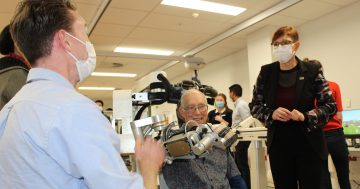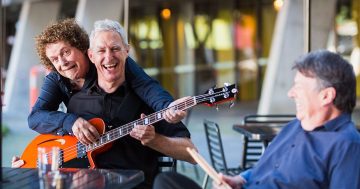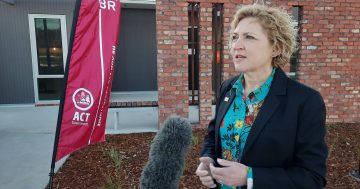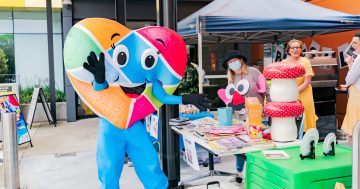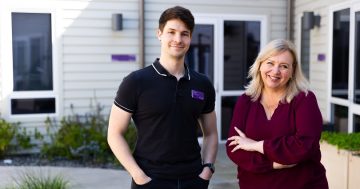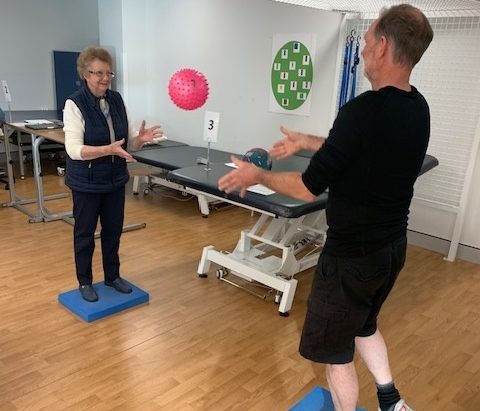
The evidence-based SPICE program combines numerous proven interventions in one program for people with dementia and their carers – and it’s getting results. Photos: Brindabella Rehabilitation Services.
It was 2021 and Michelle Bennett had begun an important journey. As the then services manager at Brindabella Day and Ambulatory Rehabilitation Service she had come across interventions proven to help people with dementia and their carers, but knew there were people in Canberra who didn’t have access to them.
“We knew all these interventions were effective for helping people living with dementia reduce their cognitive and physical decline, and in turn helped their carers,” she says.
“We also knew for those who did have access to these interventions, it was not offered in a way that would maximise their health and wellbeing.”
If they could coordinate access to all these proven interventions in one comprehensive program, what would that do? Michelle and her team at Canberra Health Services (CHS) wanted to find out, but needed to first know if it would be as effective as they suspected.
They partnered with the University of Canberra’s (UC) Ageing Research Group to develop the concept as a research project and provide a robust evaluation of it.
The Sustainable Personalised Interventions for Cognition, Care and Engagement (or SPICE) program has been in trial for 18 months – and the results of its evaluation have been exceptional.
Run by an occupational therapist, physiotherapist, social worker, psychologist and allied health assistant, the program aims to slow down disease progression, give carers strategies and support, reduce the use of health services and hospitalisation, enable people to remain in their homes longer, and maximise the quality of life of those with dementia and their carers.

Exercise groups also offer opportunities to socialise.
The 12-week, multi-component program includes cognitive stimulation therapy – engaging people with dementia in a combination of reminiscent and current-day activities, such as reading the newspaper to them.
It also focusses on the social aspect.
“Often people with dementia have stopped being as social or communicative because they’ve had negative experiences where people haven’t been able to understand them in the past,” she says.
“We work to improve their confidence, communication and their overall wellbeing by engaging them in activities where there’s no wrong answer, and we have been getting feedback from carers that it’s working.
“It’s about reassuring them they have contributions to make.”
Exercise groups for people with dementia and their carers capitalise on the role of physical activity in slowing the progression of dementia, particularly in its early stages. It also helps empower carers to maintain their own health and wellbeing, so they can meet the physical demands of their role. It also offers another platform for socialising.
Nutrition sessions run by UC students and supervised by a nutritionist are another key component.
“Having these sessions run by students also allows us to introduce that workforce to working with people with dementia.”
The program also includes the “Care of Older Persons in their Environment” or COPE modality, which involves an occupational therapist helping carers overcome challenges they’re having in providing care for their loved one.
They identify practical solutions and strategies to these challenges and build a carer’s capacity to devise their own processes as their challenges change or new ones arise.
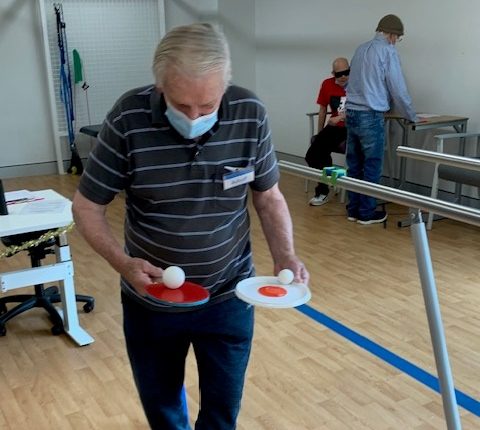
Physical activity slows the progression of dementia.
This education and skills capacity building for carers extends to behaviour support, medication management, how to best communicate and what to expect as dementia progresses, as well as self-care, resilience-building strategies and socialising and network-building opportunities.
These interventions are all shown to decrease symptoms and some specific interventions have been proven to have lasting effects on maximising the quality of life, health and wellbeing of people with dementia and their carers.
“The feedback from all our participants and their care providers is they see such a significant change in the person with dementia through the program,” Michelle says.
“Our outcome measures show there are improvements in a variety of physical, cognitive and health and wellbeing measures and a reduction in incidents of challenging behaviours.”
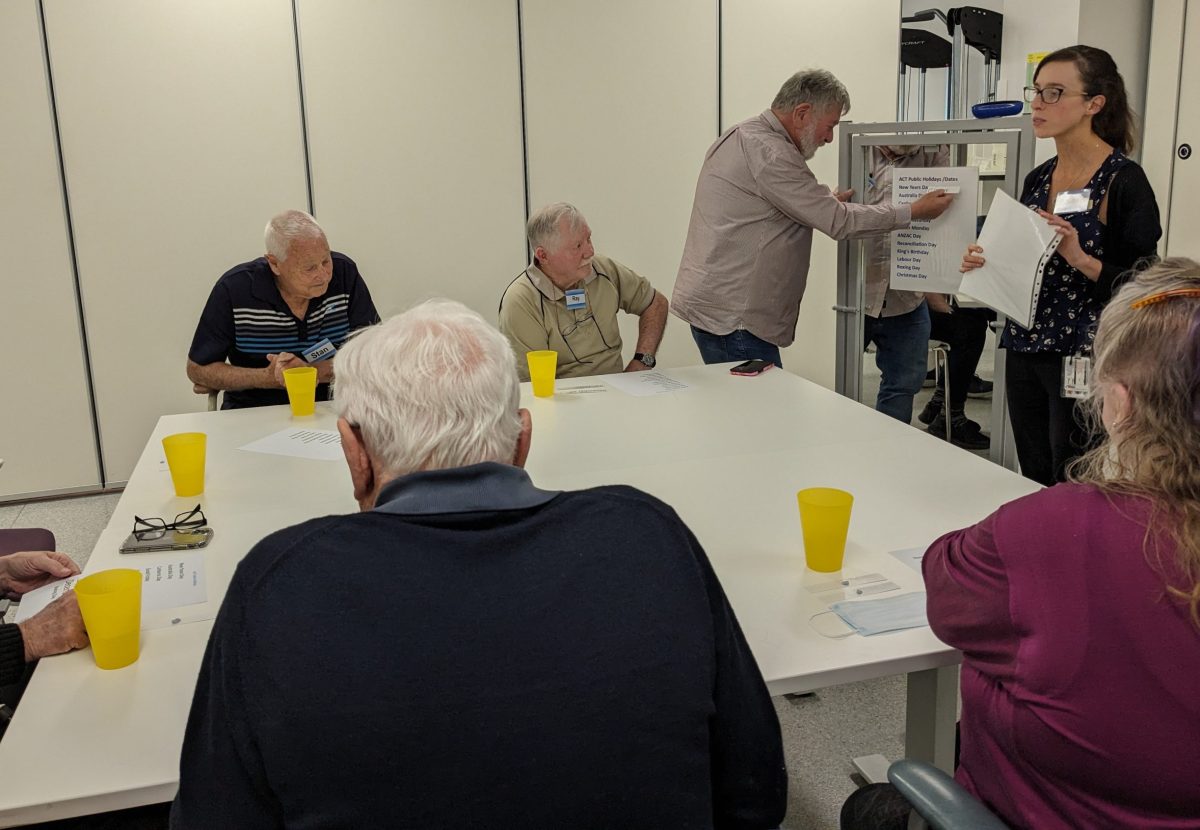
Much of the SPICE program is about building confidence and capacity.
The team also wants to set up a SPICE Step Down program, so people can continue to access the program through UC and student-led clinics. But continuation and expansion will rely on further funding.
Program delivery has so far been funded by Canberra Health Services and the University of Canberra Faculty of Health. Funding partners include Dementia Australia Research Foundation, generous organisations such as the Dickson Tradies Club, ACT Government grants and Canberra Hospital Foundation.
The Canberra Tradesmen’s Union Club acting CEO Alison Percival said the Dickson Tradies Board had been impressed by what the collaborative efforts of Canberra Health Services CHS and UC had achieved.
“We understand the profound impact that dementia has on individuals and their loved ones, and we recognise the urgent need for accessible and comprehensive support services,” she said.
“Together, we can make a significant difference in the lives of individuals living with dementia and their caregivers in our community.”
To support this and other important programs, visit Canberra Hospital Foundation and find out more about the SPICE Program by emailing chs.uchspice@act.gov.au















